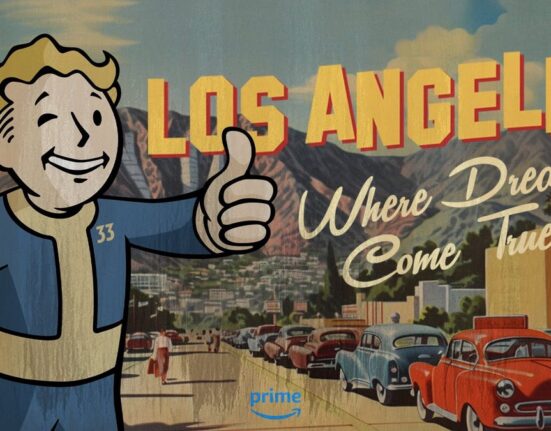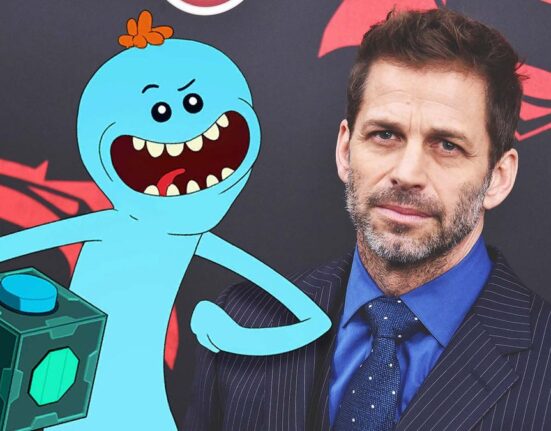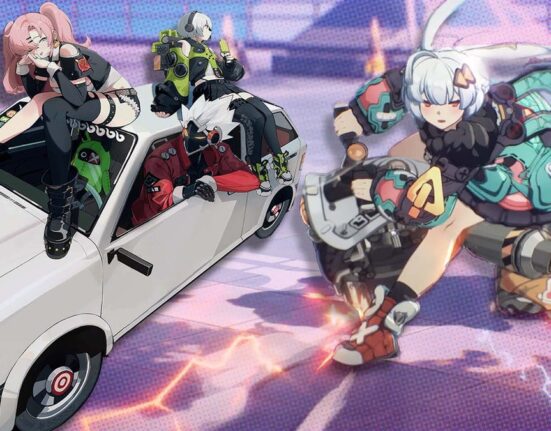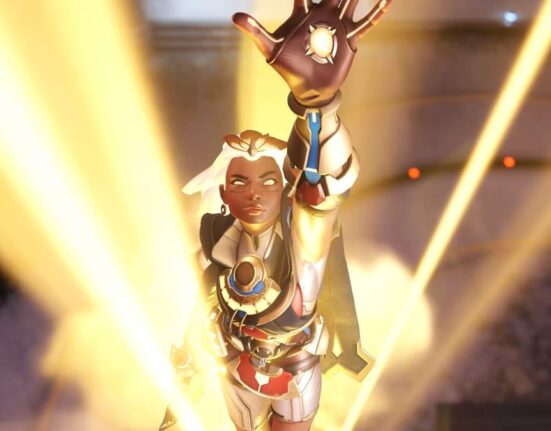Hi-Fi Rush, a game built around the concept of pure joy, was notable last week for two things. One, it’s really, really good! And two, it achieved that rarest of video game feats: a successful surprise release.
By surprise I mean absolute surprise. One minute nobody knew the game even existed, the next it was available to download and play on Xbox and PC. In this, The Year Of Our Lord 2023, how often does that happen…to anything? Anywhere? Never, that’s how often!
As a result the game doesn’t feel like a breath of fresh air, it feels like gust blowing us off our feet, and while I don’t want to undersell any aspect of the game itself when talking about its success, let’s be honest here: this game feels so fresh not just because it’s an amazing game, but because it wasn’t wrung dry for 12 months by a drawn-out marketing campaign.
What I’m about to say here isn’t meant to directly disparage anyone working in video game marketing: you have jobs to do selling video games, and in the vast majority of cases that involves people doing very good work. Whether it’s putting together blockbuster trailers or just chatting with (potential) fans on social media, it’s a tough job and one that in the majority of cases I completely understand and empathise with, especially since the system within which they’re operating—selling games on shopfronts obsessed with preorders and wishlists—demands it.
But I’m not responsible for making a single advertising campaign. I, like you, am on the receiving end of thousands of them, all at once, everywhere we look. From previews on big sites to YouTube to Twitter to Discord anyone interested in video games on the internet is under siege from the second we log on to the second the log off. Here’s a thing, preorder it, learn more about this thing, preorder it.
G/O Media may get a commission

Up to 40% off
Samsung Smart TVs
Vivid colors and deep blacks
It’s Oscar season which means it’s time to binge all the nominations before the big day. Why not enjoy these pieces of art on a new TV from our friends at Samsung?
I’ve covered this in my Deathblood saga pieces previously, but video game marketing always has a certain predictability to it. Not in terms of specific aspects of their campaign—a AAA blockbuster obviously has a different marketing budget to a small indie release—but in the way that they can so often be guaranteed to leave us feeling exhausted.
It’s not enough that we are shown a game’s world, genre and premise. We have to be told each major character’s backstory. Shown a lore explainer for the world. We’re told how many lines of dialogue are in the script, how many thousands of hours it might take to finish, who every voice actor is. We’re conditioned, and in many cases expected, to by the time of release be fans of a game that we haven’t even played yet. Which, of course, is the whole point.

Imagine if, instead of appearing out of nowhere, Hi-Fi Rush had been subjected to a traditional Bethesda marketing campaign. Picture seeing it revealed at The Game Awards back in December 2021, its bright light dimmed by the weight of the bigger, more expensive games it was revealed alongside. Imagine being subjected to Chai’s worst lines as part of a character reveal trailer on YouTube, instead of warming to his Fry-From-Futurama-esque charms over the course of the game’s opening hours. What if instead of the game being able to take so much delight in revealing its cast and world on its own terms we’d had that spoiled for us already by a Meet Project Armstrong documentary?
It would have sucked! The game itself would still have been great, of course, but so much of the joy of discovery that has accompanied its release, a modern day schoolyard buzz, would have been lost. To be clear, like I’ve said already, I don’t say any of this to shame any particular worker, studio or agency involved in marketing any other video game. The trees aren’t the problem here. It’s the forest.
Which is what makes Hi-Fi Rush so special. It’s one of the only games that could get away with this. Note I haven’t called for an end to video game marketing here, or said more games should try this, because the former would be pointless (it’s a big forest!) and the latter would be reckless advice. As much as Hi-Fi Rush feels like a remastered GameCube game, and unlike anything else out there, it was developed by a noted AAA studio and published by Bethesda, then released on Xbox Game Pass so people could try it for “free”. It was blessed to be perhaps the only possible combination of style, scope and pedigree that could afford to even try this, let alone hope to get away with it.
So I don’t want to say Hi-Fi Rush should be an example. I just want to say we should all treasure this game for what it is, and how it came to us, because in both cases the circumstances are as perfect as we could ever have hoped them to be, and we may never see them align like this again. Surprises are nice, but few are as nice as a good video game surprise.







Leave feedback about this